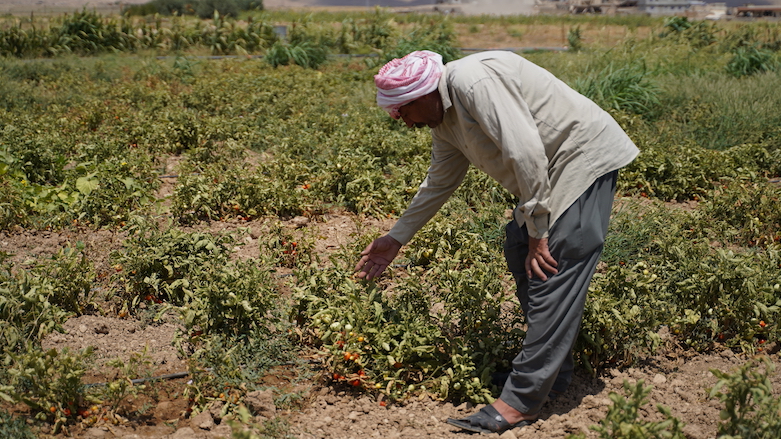Wheat production in Kurdistan Region could decrease by half due to drought

ERBIL (Kurdistan 24) – The intense drought facing Iraq as a result of manmade and environmental factors has had a huge impact on the country’s agriculture. One of the affected areas is its autonomous Kurdistan Region, where wheat production is expected to decrease by half as the result of water sources depletion, according to a new warning from 12 aid agencies.
Record low rainfall and unprecedented heat waves frequently hitting the country this year have been the two main factors that had exacerbated the drought.
Although Iraq is a petrostate and a heavy importer of essential foodstuffs, its wheat production is still an integral part of food security. The drought is depleting local water sources, which besides providing potable water, supply its electricity production and provide for irrigation of arable lands.

The northern part of the country, which used to be known as Iraq’s agricultural heartland – the first agrarian practices found in its villages date to the hunting and gathering era – is now similarly facing a drought-induced reduction in its vital commodity of wheat.
“In the Ninewa governorate, wheat production is expected to go down by 70 percent,” said the report released on Monday.
In the Kurdistan Region, wheat production could decline by half, it added.
The effect will also be seen in neighboring Syria, which is experiencing its own water crisis.
“The total collapse of water and food production for millions of Syrians and Iraqis is imminent,” said Carsten Hansen, Regional Director for the Norwegian Refugee Council. “With hundreds of thousands of Iraqis still displaced and many more still fleeing for their lives in Syria, the unfolding water crisis will soon become an unprecedented catastrophe pushing more into displacement.”

Iraq is facing the second driest season in 40 years due to record low rainfall according to the United Nations, while Syria is currently facing the worst drought in 70 years, the report said.
Tigris and Euphrates are the two main rivers that Iraq – in the past and present – has relied upon to maintain livelihoods. Dams constructed by Turkey, from which one of the main rivers inflow, have largely reduced the water flow to Iraq.
The Kurdistan Regional Government has pledged to build more dams to address the shortage in the autonomous region, after more than 20 wells in the capital province stopped providing water earlier this summer, cutting off drinking water for neighborhoods across Erbil.
The 13 aid groups behind the warning were the NRC, ACTED, Action Against Hunger, Mercy Corps, People in Need, Première Urgence Internationale, War Child, Help, Women Rehabilitation Organisation, VIYAN Organization, and Al Rakeezeh Foundation for Relief and Development.